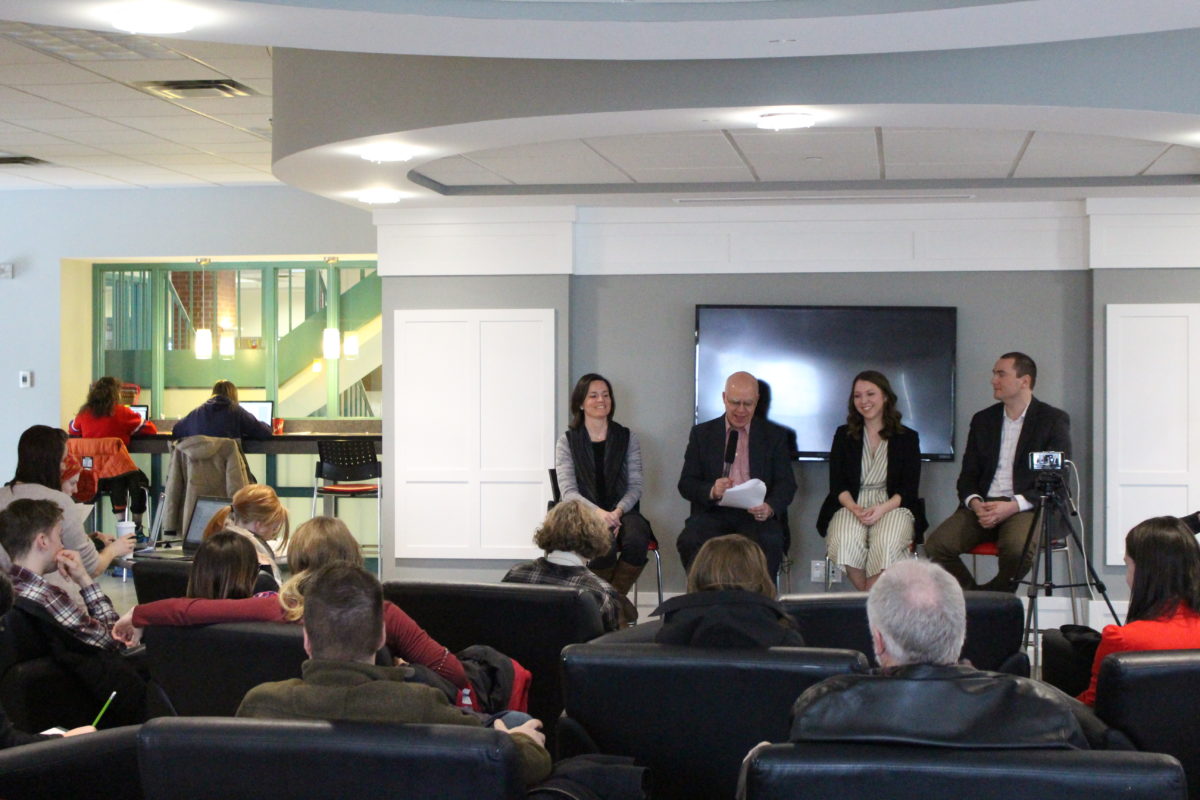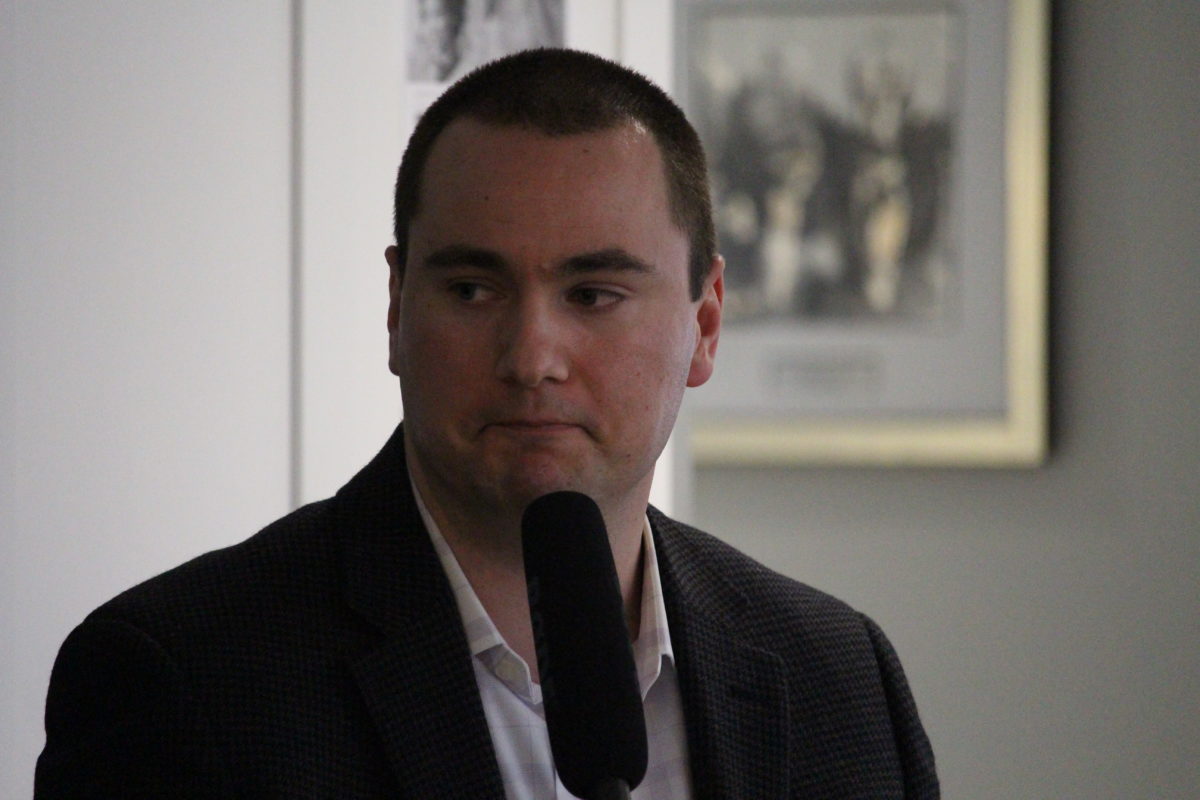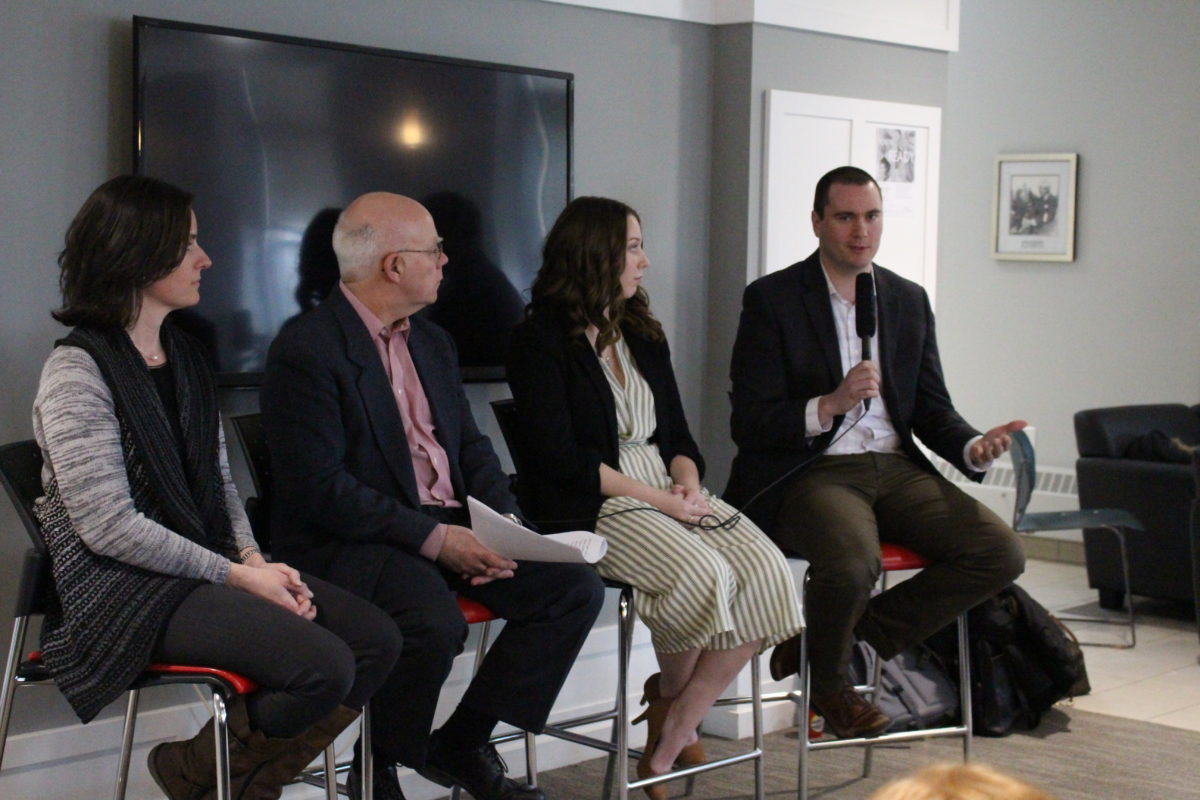Dr. Linda Hoyt told students and faculty, “If you don’t talk about [mental health], it will eat you alive,” on March 22 at an expert panel on mental health at St. Thomas University.
The Fredericton Young Greens and David Coon, Fredericton South MLA and leader of the New Brunswick Green Party, hosted the panel in the James Dunn Hall off-campus student lounge.
University of New Brunswick student Robyn Travis was one of the panelists at the event. She recently surveyed 200 students and discovered 96 per cent of them didn’t take care of their mental health.
One of the first topics covered at the panel was how to identify when someone’s mental health is deteriorating. While Dr. Hoyt said it was perfectly normal to feel down for a couple of days, anything longer could be a sign of poor mental health.

“If you’ve been feeling that way for two weeks or longer, that starts to become a problem.”
People should also be on the lookout for changes in behaviour. If a person steps out of their typical routine or behaviour pattern, like an outgoing person staying in their dorm room all day, that could be a sign of deteriorating mental health. In that case, it would be a good idea to reach out to talk to them.
But not all changes in behaviour seem negative at first glance.
“My philosophy is [that] any change merits a follow up,” Travis [who is Travis?] said. “So something we think could be positive could actually have negative roots.”
For instance, weight loss could be a good thing. At first glance people may believe the person is losing weight through healthy eating and exercise, so they congratulate them on a job well done. But Travis argues we should pay closer attention and see if this is truly the case because in reality, the person might not have eaten anything for the past week.

The panel outlined methods for maintaining good mental health. One of the most important steps people can take is to lay a healthy foundation, they said. This means getting enough sleep, eating healthy and exercising.
Other methods to relieve stress and anxiety include talking to other people, such as friends or counselors. But panelists recommended it is also good to see what activities work best for everyone individually, since everyone deals with mental health in a different way.
In the world of social media, Coon says, “Don’t engage with the trolls.”
Block anyone who makes you unhappy, including the news if you believe it makes you more stressed out, he said. The panel jokingly added the media should stop reporting on President Donald Trump since his name alone gives people anxiety.
But they said the best way to treat mental health is to seek help, whether that’s by reaching out to STU and UNB counselling services or talking to someone you trust, like a residence advisor.
“The sooner you seek help from someone, the better,” Dr. Hoyt said.

